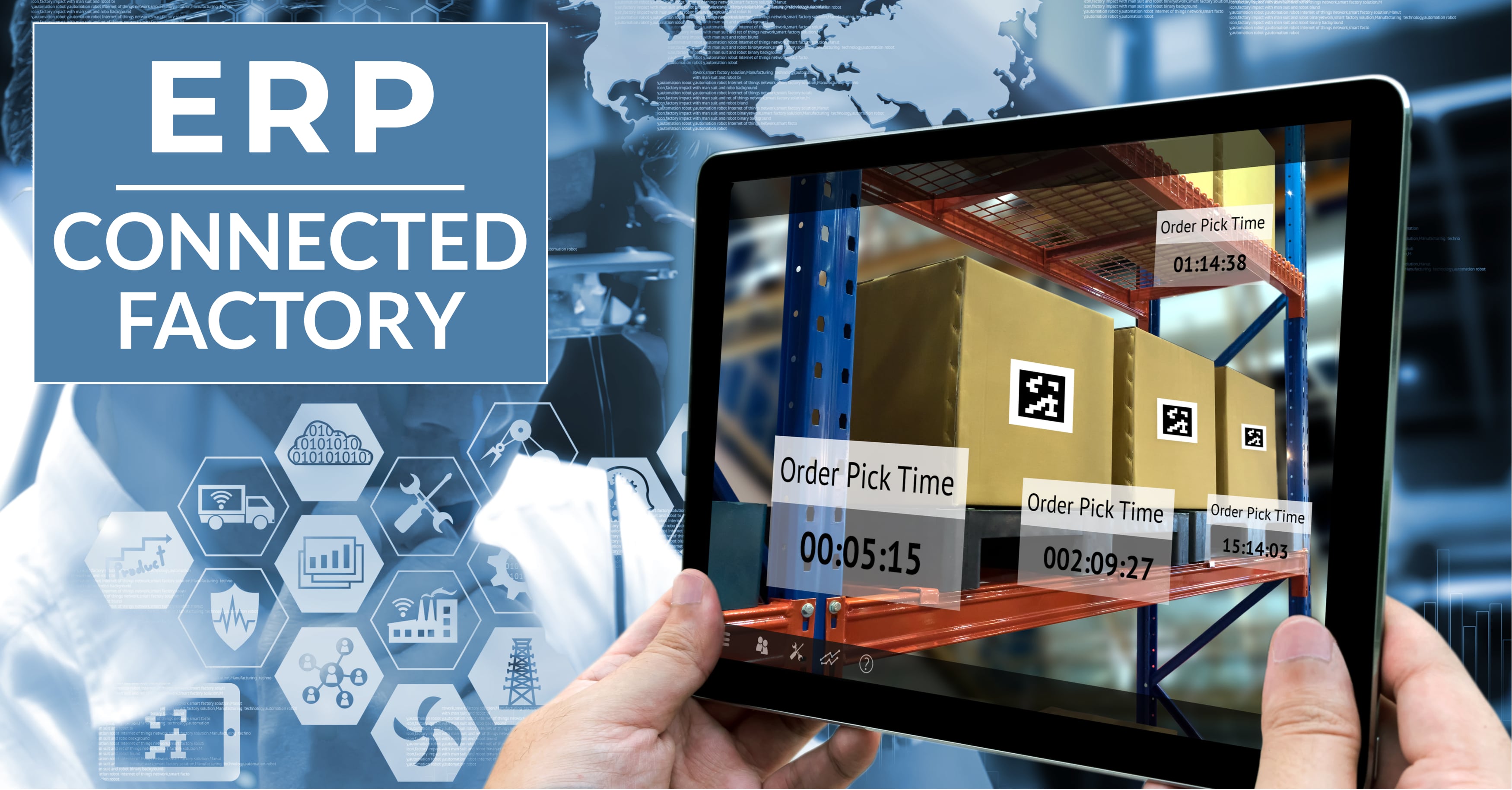Become a Smart Factory with ERP
The old approach to manufacturing was fragmented. Each department operated its own software applications and spreadsheets, resulting in information silos and different methods for recording data. With every part of the enterprise on a separate path, operations weren’t coming together to create a cohesive view of manufacturing performance. Communication gaps and disparate information led to errors and bottlenecks that jeopardized the bottom line. For many manufacturers, this old, fragmented approach is still in use, thwarting their attempts to grow in a competitive market.
Over the years, technology has come a long way to increase enterprise connectivity. Cloud computing and mobility enable manufacturers to stay on top of multiple locations and clients wherever they’re doing business. Enterprise resource planning (ERP) software has come to serve as the backbone of manufacturing, maintaining data from the shop floor to the top floor in one agile solution. The system serves as the glue to hold together your products, processes and data.
Recent innovations are allowing factories to become more connected than ever, making this the Fourth Industrial Revolution or Industry 4.0. According to a McKinsey report, Industry 4.0 trends are delivering remarkable manufacturing improvements, including a 30-50% reduction in downtime and a 40-50% increase in labor productivity. With ERP, you can capitalize on cutting-edge technology to transform into a connected factory.
Internet of Things
You can’t talk about the connected factory without mentioning the Internet of Things (IoT). Connecting machines, products and other devices to the internet generates priceless data that can optimize shop floor insights. This real-time information has the power to drastically improve uptime and production lines. From predictive maintenance to quality management, IoT provides greater manufacturing control. However, some of this data is going to waste. 84% of industrial companies are experiencing a gap between IoT and ERP, which means that information from their shop floor isn’t being leveraged to make business decisions.
An ERP vendor committed to reversing this trend is Epicor. The latest version of Epicor 10 includes an IoT feature that automatically collects data about your equipment, inventory locations and environmental factors. A streamlined dashboard gives you an overview of assets and real-time metrics. Users will be instantly alerted of abnormal conditions, such as excessive heat in the workspace or slow equipment, so the issue can be addressed rapidly. Once you detect a problem, you can quickly create a DMR or rework order to get operations up to speed. Together, IoT and ERP can help you locate issues, improve overall equipment effectiveness (OEE) and eradicate production roadblocks.
Manufacturing Execution System
While ERP is essential for planning and executing manufacturing strategies, it’s the job of the manufacturing execution system (MES) to provide the shop floor insights that inform these strategies. MES compiles real-time information across your factory, provides full traceability of materials and products, monitors all work-in-progress (WIP) and performs other critical tasks to ensure you never lose sight of your production activities. This gives manufacturers the data they need to make decisions to improve efficiency and avoid unscheduled downtime.
Epicor ERP users can enjoy this level of connectivity by adding the Advanced MES (Mattec) module. Advanced MES includes comprehensive capabilities to deliver 24/7 manufacturing insights. Automatic alerts will notify users of downtime, exceptions, process conditions and cycle speeds to enable fast responses. Manage quality, energy consumption, maintenance and more without manual data entry. With visibility and automation throughout your shop floor, you can identify and solve problems in no time.
Artificial Intelligence
Making decisions on the fly is increasingly difficult with today’s complex supply chains. To develop a connected factory, you must be closely connected with your data. Artificial intelligence (AI) technology mines your data and generates predictions, so you can respond to issues and make decisions at a moment’s notice. AI-powered analytics and automation can optimize efficiency and product quality to elevate your shop floor. These benefits make AI “absolutely critical to success” according to 49% of manufacturers who responded to a Forbes Insights survey.
Recognizing the importance of AI for manufacturing, Epicor recently debuted the Epicor Virtual Agent (EVA). This tool utilizes AI technology to improve the ERP user experience and deliver fast insights. Epicor users can speak directly to EVA to request for critical information. EVA analyzes your manufacturing assets and activities to spot problems, create forecasts and even adjust production levels in line with demand. AI can pinpoint trends and interpret data to ensure you’re making the best decisions to enhance your shop floor efficiency.
Wrap Up
Assets, schedules, materials, employees—ERP can bring everything together to form a connected factory. MES, IoT, AI and other advanced technologies are fueling smart manufacturing.
An Epicor Gold Partner, Datix will help you utilize ERP to optimize your shop floor. Our certified consultants have extensive manufacturing and distribution experience. We understand the challenges and goals of modern businesses on a deep level. From start to finish, we’ll ensure that you’re using ERP to elevate your factory floor. Additionally, our Unity integration solution can sync Epicor with CRM, Marketing Automation or eCommerce software to further your enterprise connectivity.
Don’t let gaps and silos define your manufacturing performance. Let our ERP experts help you develop a connected factory!
{{cta(‘770c1544-d87d-4acb-9fc4-7a25e1385094′,’justifycenter’)}}


